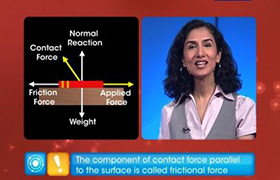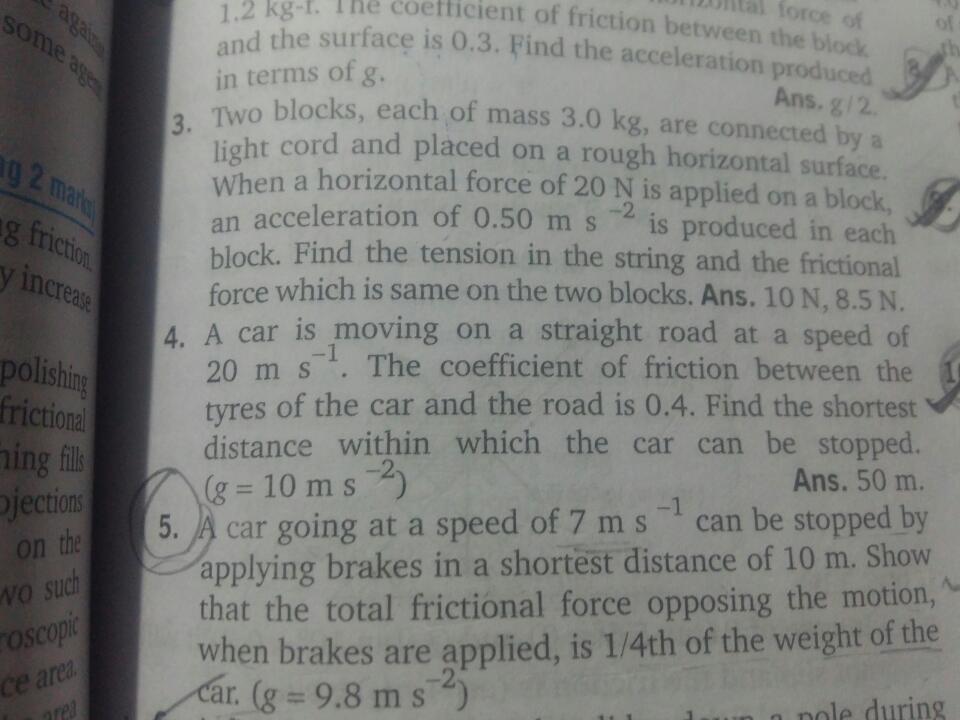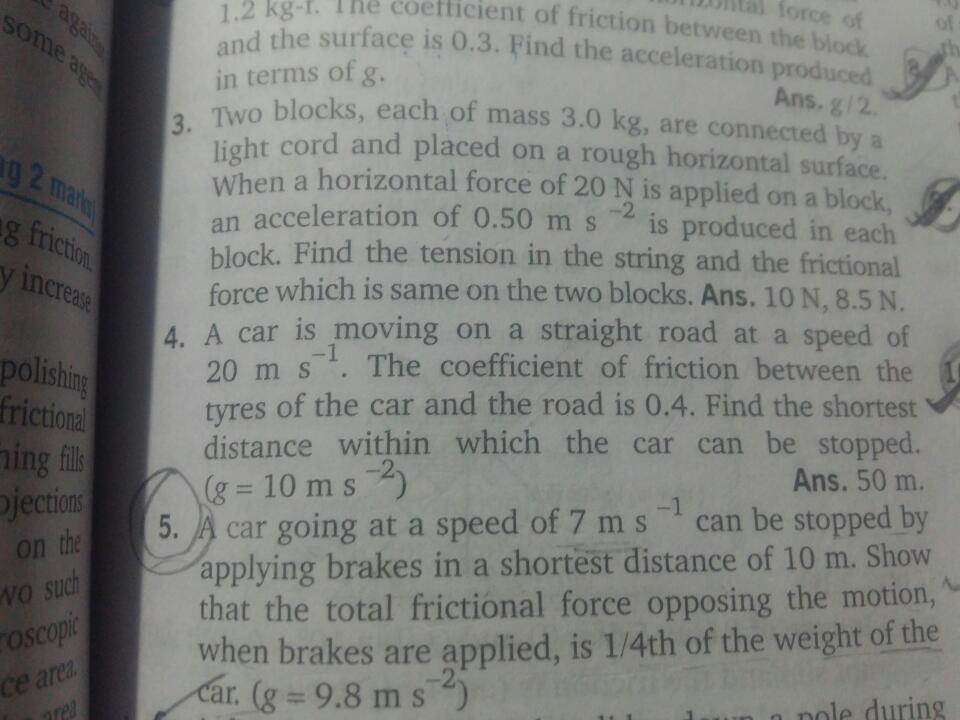CBSE Class 11-science Answered
Explain briefly: (a) Static Friction (b) Kinetic friction
Asked by Topperlearning User | 06 Jun, 2014, 07:51: AM
1. Static Friction
Static friction is the force between two objects that are not moving relative to each other. When there is no applied force, there is no static friction. It comes into play the moment there is an applied force.
Static frictional forces arise from the interlocking of the irregularities of two surfaces which prevent any relative motion until some limiting value of force is applied.
It is found experimentally that, the limiting value of static friction  is independent of the area of contact and varies with the normal force (N) approximately as:
is independent of the area of contact and varies with the normal force (N) approximately as:
 is independent of the area of contact and varies with the normal force (N) approximately as:
is independent of the area of contact and varies with the normal force (N) approximately as:
where  is a constant of proportionality depending only on the nature of the surfaces in contact. The constant
is a constant of proportionality depending only on the nature of the surfaces in contact. The constant  is called the coefficient of static friction.
is called the coefficient of static friction.
 is a constant of proportionality depending only on the nature of the surfaces in contact. The constant
is a constant of proportionality depending only on the nature of the surfaces in contact. The constant  is called the coefficient of static friction.
is called the coefficient of static friction.2. Kinetic Friction
Kinetic (or dynamic) friction occurs when two objects are moving relative to each other and rub together (like a sled on the ground).
Kinetic friction, like static friction, is found to be independent of the area of contact. Further, it is nearly independent of the velocity. It satisfies a law similar to that for static friction:

where  the coefficient of kinetic friction, depends only on the surfaces in contact.
the coefficient of kinetic friction, depends only on the surfaces in contact.
 the coefficient of kinetic friction, depends only on the surfaces in contact.
the coefficient of kinetic friction, depends only on the surfaces in contact.
Answered by | 06 Jun, 2014, 09:51: AM
Concept Videos
CBSE 11-science - Physics
Asked by nusratjan246 | 07 Aug, 2020, 11:26: AM
CBSE 11-science - Physics
Asked by kaustubh | 17 Mar, 2019, 22:49: PM
CBSE 11-science - Physics
Asked by lovemaan5500 | 22 Jan, 2019, 20:59: PM
CBSE 11-science - Physics
Asked by lovemaan5500 | 22 Jan, 2019, 20:55: PM
CBSE 11-science - Physics
Asked by Topperlearning User | 04 Jun, 2014, 13:23: PM
CBSE 11-science - Physics
Asked by Topperlearning User | 04 Jun, 2014, 13:23: PM
CBSE 11-science - Physics
Asked by Topperlearning User | 06 Jun, 2014, 07:51: AM
CBSE 11-science - Physics
Asked by Topperlearning User | 06 Jun, 2014, 08:32: AM
CBSE 11-science - Physics
Asked by Topperlearning User | 06 Jun, 2014, 08:34: AM
CBSE 11-science - Physics
Asked by Topperlearning User | 06 Jun, 2014, 08:37: AM






